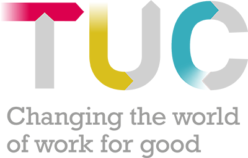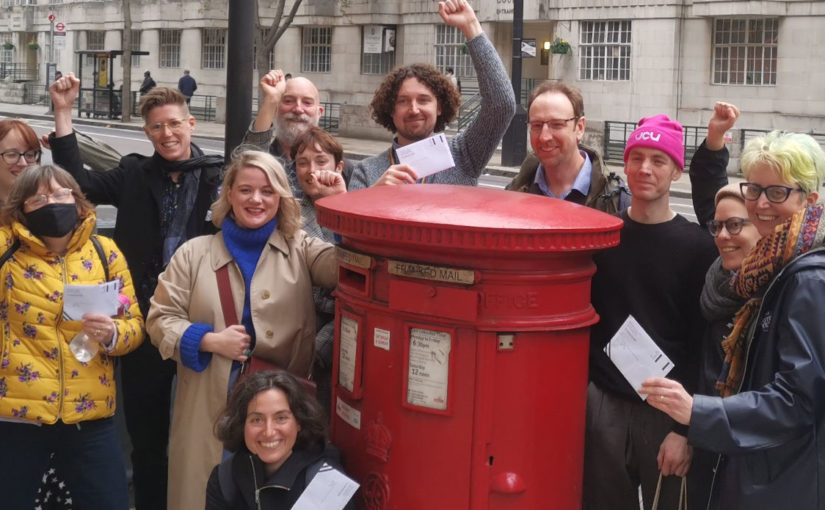Any organiser will tell you that nothing beats a face-to-face a conversation. It’s the best way to motivate, persuade and win campaigns. But in many workplaces, the last few years have made face-to-face conversations impossible. And this, coupled with restrictive trade union balloting laws, are a huge barrier to achieving the numbers we need if we aim to take industrial action.
As the UCU balloted members across 152 universities during a three-week window in 2021, these challenges were severe. Having face-to-face conversations with that many members, during a pandemic and in a short window would be impossible.
And whilst broadcast email is an efficient way of mass communication, it could be easily ignored amongst busy lives and busier email inboxes. Plus a broadcast comms approach doesn’t allow for the flexibility and personalisation of responses that could make a difference in getting someone across the many different hurdles to vote.
Why peer-to-peer SMS?
UCU, working with the TUC, planned to expand on their use of peer-to-peer text messaging to get out the vote (often referred to as GOTV), scaling it to address the national and multi-workplace campaign.
This method aimed to replicate one-to-one workplace conversations, via text message. In a live text conversation, members would be prompted to return their ballot, be able to ask questions and be told to remind colleagues to vote. The real power of this technology is its ability to scale, making activists able to hold vastly more conversations than they could through regular texting
UCU already had considerable experience of supporting branches to use this approach in balloting campaigns. They initially ran a pilot with the TUC Digital Lab in 2019, and since expanded the tactic across a number of ballots. But organising across dozens of branches and workplaces simultaneously added new layers of complexity.
What we did
Activists were trained to use the ThruText peer-to-peer SMS system during a one-hour Zoom call. They set up accounts under the UCU’s central licence for the software and were each allocated data within the system (names and mobile numbers) for members in their branch, who they would be responsible for messaging.
For the training, it was important to be able to demonstrate the software and answer a wide range of questions live, rather than just providing documentation. It was also useful to have as little gap as possible between the training and starting to use the software, and we made sure to offer a support channel to any activists who had ongoing questions.
Activists are acting as volunteers for the union and are subject to the same data protection requirements as the union’s staff. These responsibilities needed to be explained to the activists, so they could take on the task with confidence and avoid mistakes that could cause trouble for the union.
Over a couple of weeks, activists from 87 branches used the system to send 70,000 personalised text messages to 27,000 members. Having this many conversations would be impossible using any other method.
Activists were supported with pre-scripted templates that they could quickly use to find out if members had voted, to help them request replacement ballot papers where needed, give directions on how to vote, and answer many questions about the process and disputes.
It is hard to gauge the impact of many different factors on the ballot results, but we are sure this was a significant contribution. It marked the first time that the union achieved more than 50% overall turnout in a dispute around pay and pay-related issues. Several thousand requests for replacement ballot papers were processed over the three week ballot period.
More on peer-to-peer text messaging:
What is peer-to-peer texting?
Peer-to-peer texting is a method for contacting members or supporters via text messages to deliver calls to actions and build relationships. Because texts are 1:1 conversations, response and action rates are very high. This method works best when you have more people you could possibly reach out to via phone calls or face-to-face conversations. It requires a staff team or volunteers to manage effectively, but no previous experience or skills are necessary.
Like its main competitors, ThruText is cloud based software and can be used through any browser. It is easiest to operate through a desktop or laptop computer, but can be used by phone or tablet as well. Its pricing model (after an organisational set up fee) is per text sent, so it lends itself well to use by mass volunteer organisations like unions, where as many activists can be involved as are able to join, without additional software costs.
What it is not
Blast text messages, which are one-way messages, sent from by the union centrally to a list of recipients. Broadcast SMS like this typically has lower response rates and a different campaigning application.
Blast messages can be a useful addition to unions comms. They have a higher open rate than email. They can be personalised with data that you hold on the recipient, such as their name. And they can allow limited interactivity where you pre-program it and keep it simple (see this case study for more).
They’re good at delivering information that is personal to the recipient or that can convey urgency. But they aren’t able to replace the genuine individual conversations that are the bedrock of union organising.
Further info on p2p SMS
- The definitive guide: Blueprints for Change: ‘HOW-TO’ TEXTING CAMPAIGNS
- Watch this video for an introduction to peer-to-peer in a GOTV campaign, based on UCU’s original pilot work.

